UP TO THE MINUTE
Training Pt 1: Certification for Roofers, by Roofers - PODCAST TRANSCRIPT
June 24, 2025 at 9:00 a.m.Editor's note: The following is the transcript of a live interview with Jeff Romero from Progressive Materials. You can read the interview below, listen to the podcast or watch the recording.
Intro: Welcome to CoatingsCast, the ultimate podcast dedicated to the science, art and innovation of liquid and fluid applied roofing, coatings for surfaces and waterproofing. It's time to roll up our sleeves, put on our lab coats and dive headfirst into the world of liquid protection that keeps your roofs and surfaces in prime condition.
The future is here and it's liquid, so don't miss out. This is CoatingsCast where every drop counts in the world of roof and service protection.
Hello, everyone. Welcome to a very special CoatingsCast. My name is Megan Ellsworth here at CoatingsCoffeeshop.com and I am so excited because this is a three-part series of CoatingsCast episodes with my friend Jeff. Hello, how are you?
Jeff Romero: Good, Miss Megan. How are you?
Megan Ellsworth: I'm so good. I'm excited. Today we're talking about certification for roofers by roofers, but before we get into that, let's just, can you introduce yourself and tell us a little bit about Progressive Materials?
Jeff Romero: Got you. So my name's Jeff Romero. I am the Technical and Education Coordinator for Progressive Materials. What that means is I manage our CLA program. CLA stands for Certified Licensed Applicators. That is all of our contractor partners that we work very closely with and that are able to offer our warranties. PM, first of all, with our warranties really that's everybody wants a warranty nowadays. A lot of back in the day, it was just kind of go do the job right, move on to the next job and if they have a problem, we'll take care of it, but most of the time they didn't because the job was done right. So everybody's going after warranties now. We do stand behind our warranties in-house. All of that is done by us. All of our inspectors are PM employees. We don't third party anything out. We write the checks, so to speak.
So everything, we have as much on the line as the customer does, as our contractors do, so that's kind of, you'll hear a theme with PM throughout these interviews or these conversations I guess I should say, of that. We really hold ourselves to a standard at PM, a very high standard, not only with the products we provide, but also with the service we provide our contractors. So that's really kind of the gist of PM. We really hold ourselves to a high standard and we also hold our contractors to that standard as well. We want to work with those good guys, right?
Megan Ellsworth: So Jeff, why would you say it is so important for coatings' contractors to have a manufacturing partner that is with them?
Jeff Romero: So there's a lot to talk about there. Number one, familiarity with the products, right?
Megan Ellsworth: Yeah.
Jeff Romero: So a lot of manufacturers, I know we do, we offer training on all the products. The application is really what everybody focuses on whenever we're talking about contractor and manufacturer relationship. But the reality is, is that these contractors have salesmen as well that have to go out and talk these different systems that they're selling. So the training is not only for the applicators that are applying the systems, it's also very much for the sales guys that have to go out and sell and talk the product. So familiarity with the product is absolutely number one.
Number two is the more you develop a relationship and again, this is also going to be a theme that you'll hear over and over again, it's support on jobs, whether that means helping you qualify jobs, whether that means helping you address an issue that maybe you're not familiar with how to handle on the job, the better relationship you have with that manufacturer, obviously the more comfortable you're going to be with calling and asking questions, the more familiar they're going to be with the type of work you do and the level of experience, whatever it might be that you have, so we'll be more comfortable and able to help you.
And then obviously something that in my world I don't talk about a whole whole lot, but pricing. The more you work with a manufacturer, generally speaking, the better your pricing could potentially be, whether you're buying through distribution, whether you're buying direct. Whatever the situation may be, if you have to get very aggressive on a high profile job that you're trying to really get, the better the relationship with that manufacturer, the easier it is for you to call and say, "Hey, we got to really sharpen the pencil on this job and you need to help me out with pricing to get that." The more likely that is to happen.
Megan Ellsworth: Yeah, no, that's so true. And having that safety net to fall on for advice, like you said, product training and demonstrations for new crew members, that's huge. It's such an important facet to have.
Jeff Romero: That's a great point that you just brought up, the new crew members. So we work with a lot of contractors that have just gotten into coatings, maybe they just got into commercial roofing, so that side of their business is a little small. They start landing jobs, they start adding sales team, they start adding crew guys, they start adding applicators. Well, none of those guys got the training that you originally got from us. So we can come back and do a refresher course with the new guys, whether that's online or we love to come and visit contractors in person. We do that quite often. So that's a great point that you bring up, is that continued support, continued education and training for your new guys. That way it lifts the load off of you as a contractor to have to make sure these guys are trained. You get new guys, you call us up. We're your training department.
Megan Ellsworth: Yeah. Yeah. Yes. I love that. Like an in-house training or out-of-house training department. Love it. So what inspired you to build and implement this program through PM in such a contractor friendly way?
Jeff Romero: So I can't take credit for it. It wasn't just me. Obviously Jay, my boss and John and the other guys in the tech department, a bunch of the sales guys had input on this, but I think the seed was the tech department. First of all, we're all roofers. We're all old roofers. Everybody in the tech department has been a roofer at some point. So I think we kind of drew from our experience with other manufacturers from a roofer's perspective.
A lot of times manufacturers will make you come to them to do that training. It's a little cumbersome for a contractor. A lot of times you're limited on who you can take. That can be very expensive. Even if the manufacturer is putting you up in a hotel or whatever, you still have to get there. There's always expense involved, whether it means you're pulling guys off of jobs, you're taking guys out of town, whatever it is, there's expense. And not only that, but you're not doing your job. If you're out of town for this training, you're not being productive, whether it's the sales guy, the owner, the sales manager, operations. Whoever's there, you're removing them from the company for that two or three days. So the idea was if we can go to them and provide that training in a two to four hour, sometimes a little bit longer, time period at their place where the minute they're done, they go back to work, the crews go back to work, the sales guys get back on the road and there's a lot less downtime. That was number one.
And then really digging into it and thinking about it, whenever we started to come up with this idea, we quickly realized that we're all roofers, majority men and men and roofers combined do not like to be the only guy in the room that doesn't know something, right? So with other manufacturers, you're in a room with sometimes up to 10 other roofing companies that might have three or four guys there. So you have all these and I'm as guilty as the next guy, you have all these egos in the room. Nobody wants to be the guy that raises their hand and says, "I don't know this. I don't understand that."
So what we quickly realized and I see it whenever I do trainings all the time, people are much more comfortable at home. They feel safe, they're in their office, they feel much more comfortable saying, "Hey, wait a minute, I didn't quite get that or I don't quite understand this." And they ask questions. That was really the two big things was downtime, expense and we want you to ask questions as a contractor in our training, we want to fill in the blanks that you have. We don't just want to throw a bunch of stuff at you and say, "Go do jobs." That's not what the training or any training in our opinion should be about. It should be about truly educating who's receiving the training.
Megan Ellsworth: Yeah. Yes. I love that and I love creating space for people to feel comfortable to ask those questions that you might feel like, "Oh, is this a dumb question?" But there's no dumb questions when you're learning, right?
Jeff Romero: It's true. I mean, it sounds so cliche that there's no stupid questions, but I say it all the time and I'll be honest with you, talking about the men and women thing, there are tons of women, as we've discussed before, you and I, our president at PM is a woman.
So there's more and more women in the industry and what's really funny is I always get excited when there's a woman in the training because I know she's going to be the first one to raise her hand and say, "Wait a minute, explain that again. I don't understand this, whatever." And then that kind of breaks the ice for everybody else. And then the discussion really, really starts. Our trainings, our CLA trainings, are very conversational. That's one of the first things I say. Even before I introduce myself, I say, "Look, I am not standing up here and talking for two hours. I want this to be conversational. If there is a question, stop me in the moment and let's discuss it. Let's pull everything we can out of that topic and then we will carry on. And if we stop every five minutes, that's the way it is." And it seems to really, really work. We have a lot of fun in the training. The trainings are a lot of fun for, I think both.
Megan Ellsworth: Keeping it conversational and discussion oriented I think also helps people learn when it's not just someone, like you said, talking at them, they're actively thinking and critically thinking about it themselves as well.
Jeff Romero: Well, sure, 100%. And the biggest thing that, one of the main things I say is, "I want it to be conversational." And then the very next thing that I say is, "I don't want to bang your heads against things you already know." A lot of these contractors, most of our contractors have at least a basic knowledge of commercial roofing and coating.
Megan Ellsworth: Right.
Jeff Romero: So I don't want to spend a ton of time talking about things that you're familiar with. So if you're familiar with it, let me go past it.
Megan Ellsworth: Yeah.
Jeff Romero: I want to spend our time filling in the blanks that those contractors have. Some contractors have a lot more blanks than others, obviously, but that's kind of the fun of it for me is never knowing what I'm walking into. It's not the same presentation, if you will, every single time. It always goes in different directions. It's a lot of fun.
Megan Ellsworth: Yeah. Yeah. Yeah. For you, that's the best part of the job. I love it.
Jeff Romero: Absolutely.
Megan Ellsworth: So what else would you say is special or different about the certification training course classes?
Jeff Romero: The one-on-one and I say one-on-one, it's manufacturer, contractor, one-on-one, right?
Megan Ellsworth: Yeah.
Jeff Romero: So we're in there and it goes back to filling in those blanks that those people have. Some contractors I've dealt with said, "Look, we don't want to coat anything but metal. We're not going to touch anything else. That's just where our comfort zone is." So then I can tailor that training specifically to what they do.
Different areas of the country see different types of roofing systems more frequently. So I can tailor, that's another thing that I ask all the time, "What do you guys see the most of? What are you doing the most of? Where do you want to do coatings? Is this just a repair thing for you? Is this something that you want to go full tilt and be front and center?" So based on the feedback that each contractor gives me, we can really tailor that training and focus on the things that apply to them rather than just throwing everything at them and hoping they grab the little bits and pieces that pertain to them the most.
Megan Ellsworth: Okay. So you kind of touched on it a little bit, but how do you tailor this program to different contractors that are in a different era of their business?
Jeff Romero: So that actually starts with the process we have on finding these contractors that are interested in being CLAs.
So the first step in that process usually is our regional managers out in the field, our sales guys making contact with a contractor. They take notes on that contractor, who they are, what they're doing, where they are in the coating world and all that stuff. Then they send that to me and say, "Hey, Jeff, look, I have this contractor. He wants to become certified. He's been doing commercial roofing for X amount of years. He's been doing coating for X amount of years or X amount of days." Whatever the situation may be. So before I even make contact with that contractor, I know a lot about them and where they are. So I can put my mindset in a place that is kind of starting to tailor towards what they're working on, where they're trying to go.
And then my initial conversation with them before we set up training is, "Okay, here's what I do. You're interested in becoming certified. What does that look like for you? What percentage is residential? What percentage is commercial? Out of that commercial, what percentage is coating currently? Where would you like to see that go?" So we have those conversations. We really understand who the contractor is and what they're doing.
And then going into the training, I know who they are, I know what their goals are with coating and with PM and then I go in with that mindset and I always have, my little notepad is never far. I carry it with me everywhere I go, all around the country.
Megan Ellsworth: Love it.
Jeff Romero: And I have notes on that contractor. Whenever I walk in there, I review my notes, obviously and I have them in front of me. And as we get started, I just kind of focus on those things.
Everybody is exposed to the same information, right? We don't hold things back for certain contractors or whatever, but I understand what their goals are and where they're wanting to go and I can focus on those things. And what's really funny is sometimes we get into it and I'll get a totally different story in the middle of a training and I'm like, "Okay, well, the conversation I had with the owner said you guys were trying to get here." And then the conversation and the training with the sales manager, whoever it might be, kind of is different. So then at that point, I kind of just, "Okay, let's focus on everything and let's take our time and get all this stuff done.""
Another thing that it's really important is we try our best and most of the time we do it, we only schedule one training per day whenever I'm on the road. It makes for some kind of drawn out trips and stuff. But I think that's very important because the last thing, as a contractor, the last thing you want to feel is, well, this guy hurried up to leave to go to another contractor or he was late because he was with another contractor. We really, I try to schedule only one. That way and like we talked about before, if it goes five, six hours because they're super engaged, they have a lot of questions, that's fine, we can do that. I don't have anywhere to be. So that's something that is really important and we really try to only schedule one per day, whether it's online or in person.
Megan Ellsworth: Yeah. I think that is so important and just devoting that time to that contractor in their team is so important in making them feel as though you are devoting that time.
Jeff Romero: Yeah and I mean, it's not just for show. It's real. We want our contractors to feel the dedication we have to them and the level of support that we want to provide to them. We really want them to feel that day one with us.
Megan Ellsworth: Yeah. Yeah, exactly. Okay, so what are some normal challenges or pain points in becoming certified and how do you address them?
Jeff Romero: So that kind of goes back to what we spoke about earlier with the standard way of training or certifying contractors. It goes back to the travel time, the downtime associated with having to go to those trainings. It just takes up a lot of time, it takes up a lot of money and the way we address that is, again, just going to them. We go to your place. A lot of times it really and my mind's kind of going all over the place, I want to tell you everything, but a lot of times we'll do a training. I'll meet with a contractor at seven, eight o'clock in the morning. We'll finish up 10, 11 o'clock and during the conversation they'll say, "Well man, this job we just looked at the other day could go coating rather than replacement or something like that." So we'll go and walk the roof. We'll finish the training, we'll hop in the trucks and we'll go and visit a roof and walk those roofs. So that doesn't really pertain to the question you asked me, I apologize, but I felt like it was worth mentioning.
Megan Ellsworth: No that-
Jeff Romero: So the way we address it is kind of what we talked about whenever we were coming up with the idea for the CLA training that we have now, the program that we have now is we want to take all the downtime and the expense out of it. We just don't think that a contractor that's wanting to work with us should have to shell out a bunch of money and time in order to do that. So we kind of foot the bill, if you will, to get that guy certified. I think that is pretty much the gist of it.
Megan Ellsworth: No, I think that is the main pain point for most certifications and trainings and what-not and that's fabulous. So how can contractors access this support? How do they become a CLA?
Jeff Romero: So the best way is to get on our website and find your regional manager. We call them RMs. Most of the contractors is going to call them their sales rep.
Megan Ellsworth: Got it.
Jeff Romero: Our guys are a little more than sales reps. We call them regional managers. So the best way is to contact your regional manager and just say, "Hey, I want to learn more about PM. I want to potentially get certified." The other way is you can go to our website. There's little forms you can fill out. There's actually a CLA application request form. It just asks you who you are, where you are. Whenever you submit it, it goes directly to your regional manager, so they know you're interested. They call you up and you'll get those questions that I mentioned earlier. They'll start grilling you a little bit and see where you are and who you are and all that stuff and then they'll pass you on to me.
Megan Ellsworth: Amazing. Amazing. Well, Jeff, this has been a great start to our three-part podcast series. So thank you so much for chatting with me and thank you for sharing all the great information about the PM CLA program and certification that you guys do.
Jeff Romero: Sure. Well, thank you for having us and I'm really looking forward to the next two. This has been a lot of fun.
Megan Ellsworth: Absolutely. Okay, we'll see you on the next one.
Jeff Romero: Yes, ma'am.
Outro: Thanks for joining us on this coating adventure. Stay tuned for more episodes. And in the meantime, be sure to follow us on social media to stay updated with all things roof coatings. Until next time, stay coated. For more information, go to coatingscoffeeshop.com.







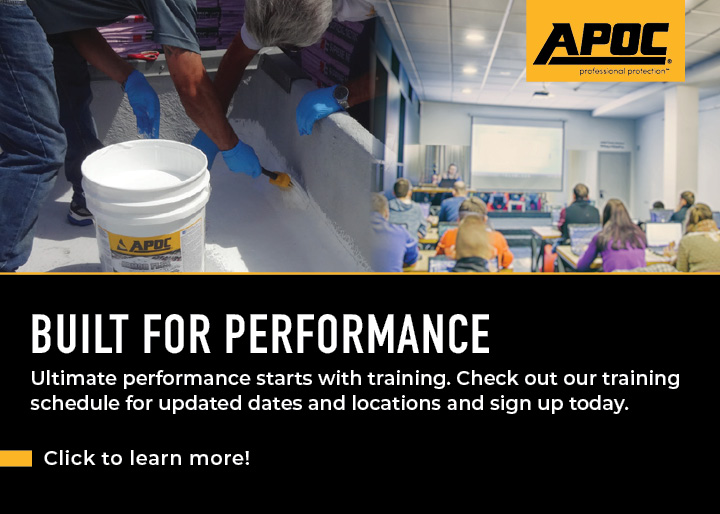

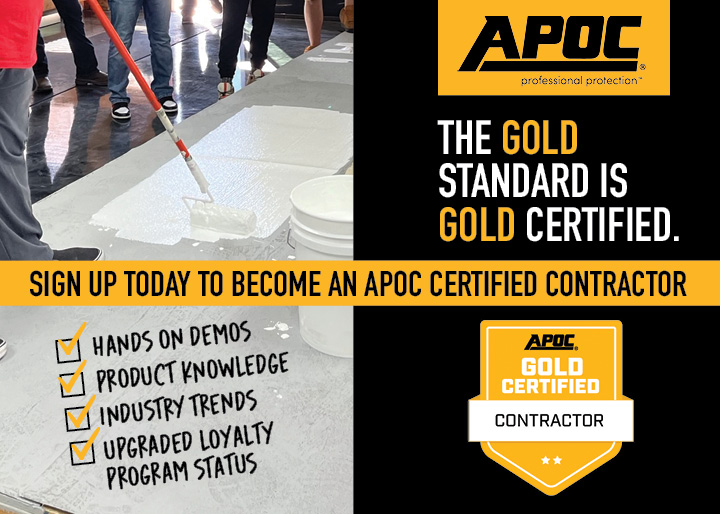


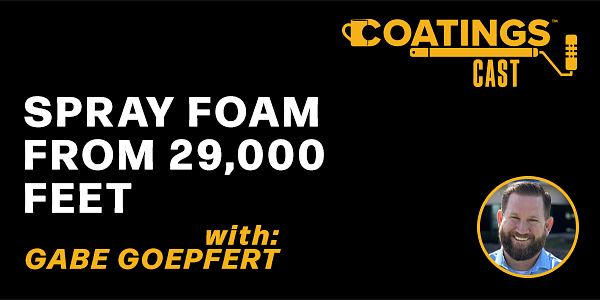
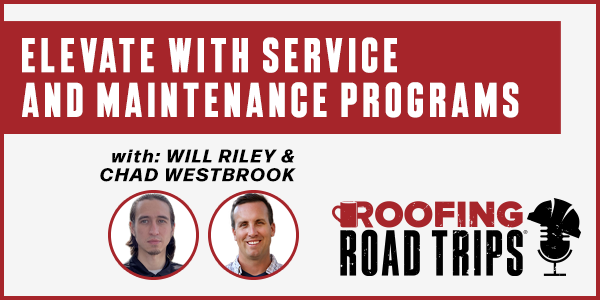
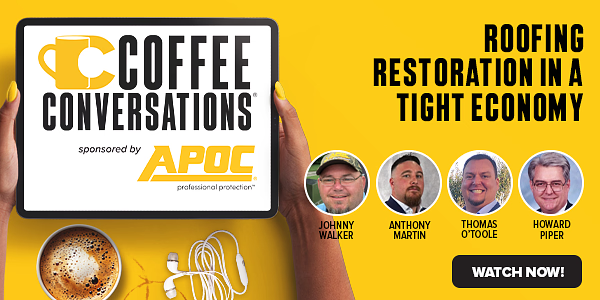


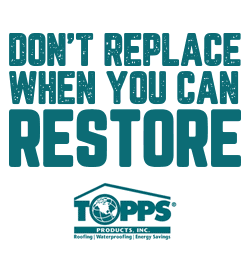


Comments
Leave a Reply
Have an account? Login to leave a comment!
Sign In